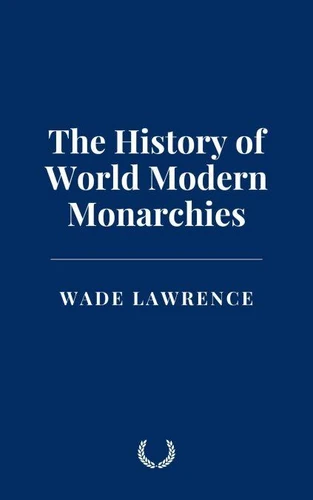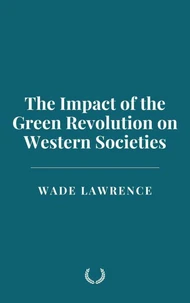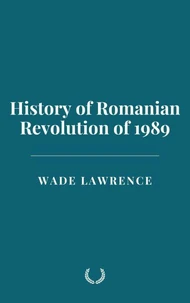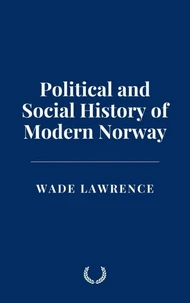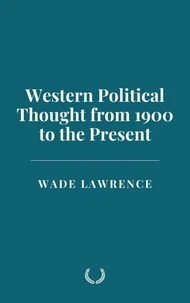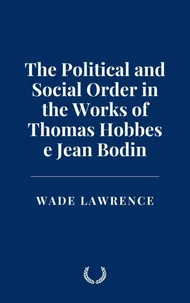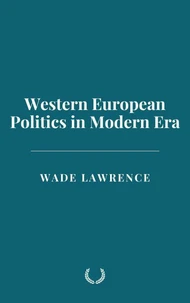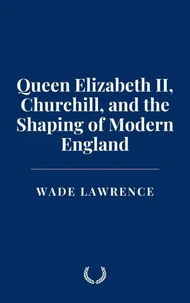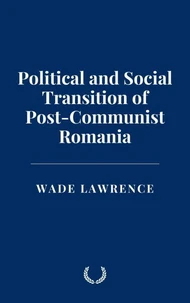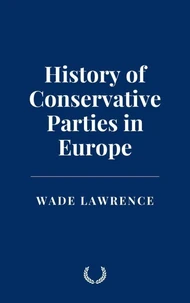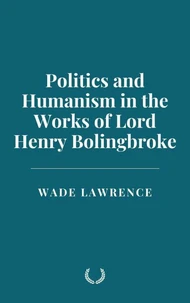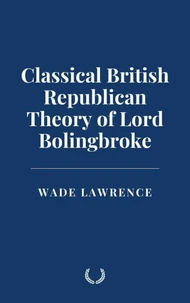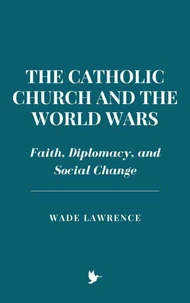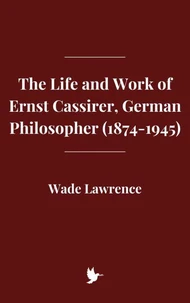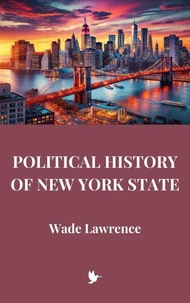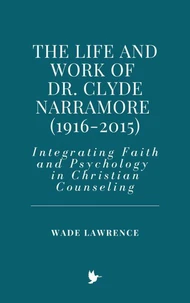The History of World Modern Monarchies
Par :Formats :
Disponible dans votre compte client Decitre ou Furet du Nord dès validation de votre commande. Le format ePub est :
- Compatible avec une lecture sur My Vivlio (smartphone, tablette, ordinateur)
- Compatible avec une lecture sur liseuses Vivlio
- Pour les liseuses autres que Vivlio, vous devez utiliser le logiciel Adobe Digital Edition. Non compatible avec la lecture sur les liseuses Kindle, Remarkable et Sony
 , qui est-ce ?
, qui est-ce ?Notre partenaire de plateforme de lecture numérique où vous retrouverez l'ensemble de vos ebooks gratuitement
Pour en savoir plus sur nos ebooks, consultez notre aide en ligne ici
- FormatePub
- ISBN8230453772
- EAN9798230453772
- Date de parution20/01/2025
- Protection num.pas de protection
- Infos supplémentairesepub
- ÉditeurIndependently Published
Résumé
This book explores the multifaceted history and contemporary relevance of monarchies across the globe, delving into their evolution from absolute rulers to largely symbolic figures in the modern world. It examines the intricate relationship between monarchies and political power, as well as the social, cultural, and diplomatic roles they continue to play. From the ancient monarchies of Egypt, Mesopotamia, and Greece to the modern constitutional monarchies of Europe, Asia, and the Middle East, the text traces the transformation of monarchic systems in response to political revolutions, colonialism, nationalism, and democratization.
The book analyzes key moments in history, such as the rise and fall of monarchies in France, Russia, and Germany, and the ways in which they have adapted to the modern political landscape. It delves into the role of monarchs as both political and cultural leaders, examining their patronage of the arts, their influence on religious institutions, and their status as symbols of national identity. The text also critically assesses the enduring power of monarchy in countries like the United Kingdom, Saudi Arabia, Japan, and Thailand, highlighting how monarchies have navigated the pressures of modernization, globalization, and regional independence movements.
Through an in-depth examination of monarchies' symbolic and diplomatic roles, the book argues that, while their political power has waned, monarchies continue to shape global affairs, national unity, and cultural heritage. It concludes with a reflection on the future of monarchies in the 21st century, exploring how these institutions may evolve in an increasingly democratic world while maintaining their cultural significance and influence on national and international politics.
This work offers a comprehensive view of the history, politics, and cultural legacy of monarchies, providing valuable insights into the adaptive strategies of these ancient institutions and their ongoing impact on global governance and identity.
The book analyzes key moments in history, such as the rise and fall of monarchies in France, Russia, and Germany, and the ways in which they have adapted to the modern political landscape. It delves into the role of monarchs as both political and cultural leaders, examining their patronage of the arts, their influence on religious institutions, and their status as symbols of national identity. The text also critically assesses the enduring power of monarchy in countries like the United Kingdom, Saudi Arabia, Japan, and Thailand, highlighting how monarchies have navigated the pressures of modernization, globalization, and regional independence movements.
Through an in-depth examination of monarchies' symbolic and diplomatic roles, the book argues that, while their political power has waned, monarchies continue to shape global affairs, national unity, and cultural heritage. It concludes with a reflection on the future of monarchies in the 21st century, exploring how these institutions may evolve in an increasingly democratic world while maintaining their cultural significance and influence on national and international politics.
This work offers a comprehensive view of the history, politics, and cultural legacy of monarchies, providing valuable insights into the adaptive strategies of these ancient institutions and their ongoing impact on global governance and identity.
This book explores the multifaceted history and contemporary relevance of monarchies across the globe, delving into their evolution from absolute rulers to largely symbolic figures in the modern world. It examines the intricate relationship between monarchies and political power, as well as the social, cultural, and diplomatic roles they continue to play. From the ancient monarchies of Egypt, Mesopotamia, and Greece to the modern constitutional monarchies of Europe, Asia, and the Middle East, the text traces the transformation of monarchic systems in response to political revolutions, colonialism, nationalism, and democratization.
The book analyzes key moments in history, such as the rise and fall of monarchies in France, Russia, and Germany, and the ways in which they have adapted to the modern political landscape. It delves into the role of monarchs as both political and cultural leaders, examining their patronage of the arts, their influence on religious institutions, and their status as symbols of national identity. The text also critically assesses the enduring power of monarchy in countries like the United Kingdom, Saudi Arabia, Japan, and Thailand, highlighting how monarchies have navigated the pressures of modernization, globalization, and regional independence movements.
Through an in-depth examination of monarchies' symbolic and diplomatic roles, the book argues that, while their political power has waned, monarchies continue to shape global affairs, national unity, and cultural heritage. It concludes with a reflection on the future of monarchies in the 21st century, exploring how these institutions may evolve in an increasingly democratic world while maintaining their cultural significance and influence on national and international politics.
This work offers a comprehensive view of the history, politics, and cultural legacy of monarchies, providing valuable insights into the adaptive strategies of these ancient institutions and their ongoing impact on global governance and identity.
The book analyzes key moments in history, such as the rise and fall of monarchies in France, Russia, and Germany, and the ways in which they have adapted to the modern political landscape. It delves into the role of monarchs as both political and cultural leaders, examining their patronage of the arts, their influence on religious institutions, and their status as symbols of national identity. The text also critically assesses the enduring power of monarchy in countries like the United Kingdom, Saudi Arabia, Japan, and Thailand, highlighting how monarchies have navigated the pressures of modernization, globalization, and regional independence movements.
Through an in-depth examination of monarchies' symbolic and diplomatic roles, the book argues that, while their political power has waned, monarchies continue to shape global affairs, national unity, and cultural heritage. It concludes with a reflection on the future of monarchies in the 21st century, exploring how these institutions may evolve in an increasingly democratic world while maintaining their cultural significance and influence on national and international politics.
This work offers a comprehensive view of the history, politics, and cultural legacy of monarchies, providing valuable insights into the adaptive strategies of these ancient institutions and their ongoing impact on global governance and identity.

